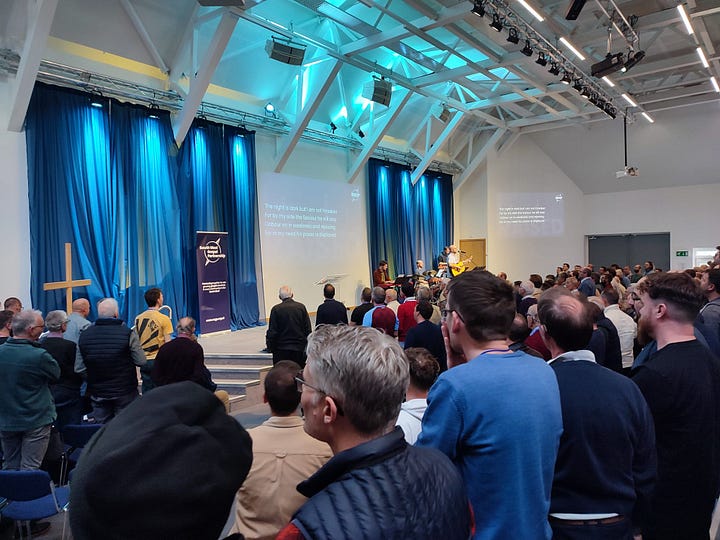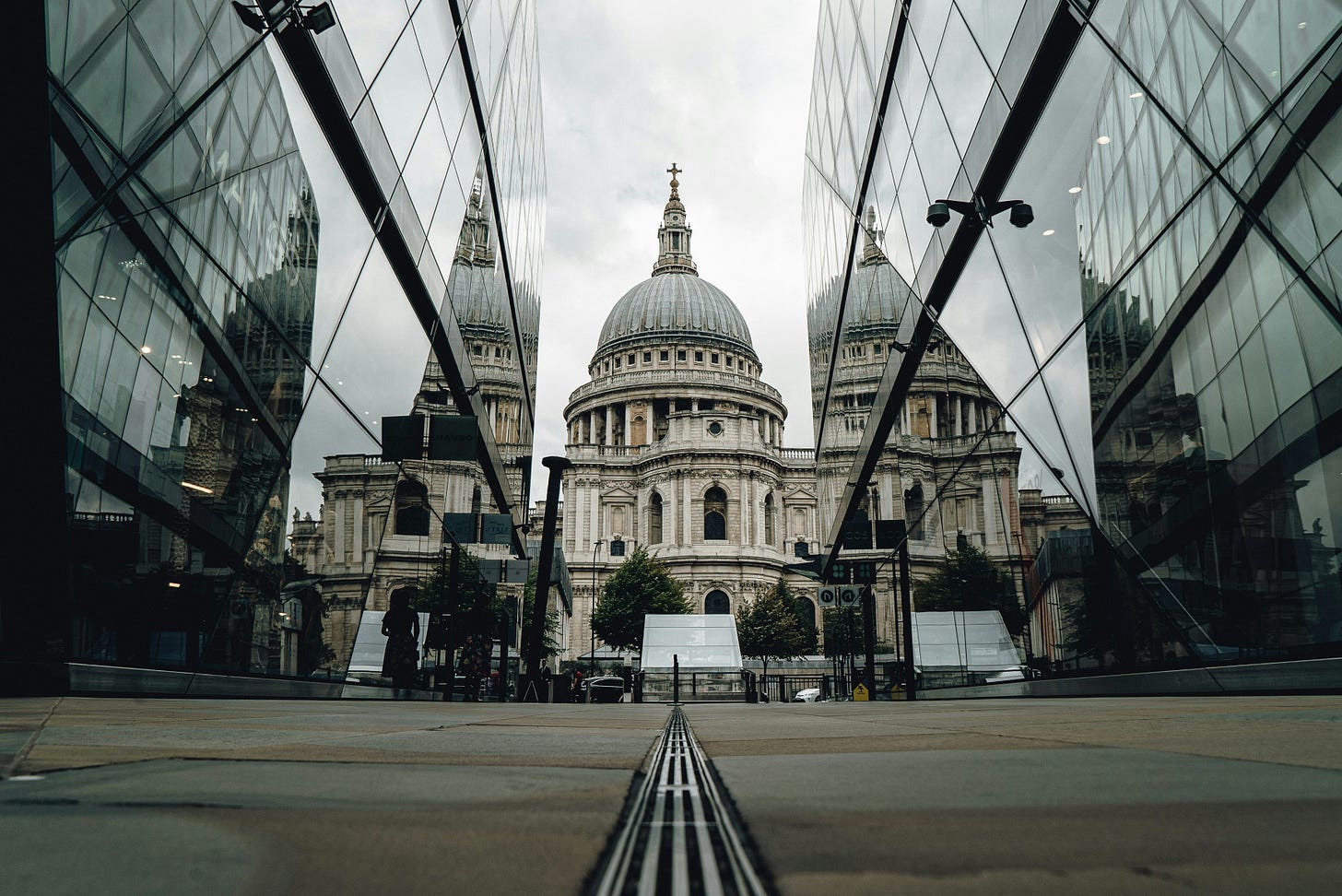The church wasn’t particularly big. It wasn’t particularly small either. Made up of people from different walks of life, it gathered together each week to sing hymns, read the Bible, and hear it preached. But for all their differences, one of the things that had characterised the life of this congregation in recent years was the opposition it had experienced from outside.
A couple of decades ago the church’s members had been admired by many in society for what they believed about Jesus. But things had changed. Now they weren’t social insiders, but marginalised outsiders. In fact, things had become so challenging that many people in the church were facing hostility from friends and family. They had begun to experience discrimination in places like government and university. They had even faced restrictions on meeting together.
At least some of that could be said of the experience of evangelical churches in the UK at the moment, let alone in other places around the world. 20 years ago evangelical Christians were respected, if not admired, by many in our culture. Today, they are often perceived as dangerous. And the truth is, this opposition isn’t going away. It’s getting stronger.
But here’s the thing. That description I just gave you wasn’t actually a description of a church today. No, the particular congregation I was talking about was from exactly 350 years ago. It met in a place called Crosby Hall in Bishopsgate in the City of London. And, at the time that he wrote his theology, Stephen Charnock was one of it’s pastors.
Old theology, today
A couple of weeks ago I had the privilege of delivering a session at the South West Men’s Convention. Drawing Christian men from across the region, the theme of the day was ‘resurrection courage’. I was asked to lead a seminar providing a ‘deeper dive’ into the theology of Christ’s resurrection to compliment three sermons by Jonty Alcock on the theme of resurrection from the Old Testament. And, not wanting to miss an opportunity to share Stephen Charnock with people today, I decided to make the 17th century pastor and theologian our guide.


And what a guide he proved to be! Regular readers of this newsletter will know that, as well as being a sophisticated scholar, Charnock was a gifted communicator. It was therefore little surprise that, as I dug into what he thought about Christ’s resurrection, I didn’t have to look far before I found many helpful quotes and insights for a seminar for Christians in our own time.
But one of the things that makes Charnock’s reflections so helpful for us in the 21st century is not only that they are profoundly biblical, but that they are also historical. That is simply to say that they weren’t written today. And that makes them especially beneficial for, as C S Lewis famously wrote,
Every age has its own outlook. It is specially good at seeing certain truths and specially liable to make certain mistakes. We all, therefore, need the books that will correct the characteristic mistakes of our own period. And that means the old books.
Some of what Charnock taught about the resurrection is typical of the theology you can find in books sold on, say, the bookstall at The South West Men’s Convention. However, he also said a number of things that you don’t tend to hear people talk these days. And it’s perhaps those things that are particularly helpful for us today.
Spiritual success
Yet, what perhaps makes Charnock’s reflections on the resurrection most poignant is that Charnock wasn’t writing his theology at just any point in history, but in the mid-1670s specifically. And it was at this time that Charnock and his congregation were coming to terms with great disappointment in the life of their church and their country. With the success of Parliament in the English Civil War, 25 years earlier, Puritans like Charnock had experienced significant influence in British society. At long last they had an opportunity to reform the religious life of their nation and they interpreted the success they had experienced politically as a sign from God of even greater things to come spiritually.

To give you an illustration of the kind of success Charnock had experienced earlier in his life - straight out of university, Charnock had landed a job as the chaplain to a man called Colonel Thomas Harrison, who was one of the most powerful colonels in the Parliamentarian Army. Harrison had personally escorted King Charles I before his trial and was one of the men who signed his death warrant. And now, at the age of 21, Charnock found himself responsible for pastoring Harrison and his soldiers just months after those cataclysmic events. Not bad for your first job out of uni, eh?
Two years later Charnock moved on to teach at Oxford University alongside the likes of John Owen and Thomas Goodwin, Oliver Cromwell’s two chief religious advisors. And after four years doing that, Charnock was then invited to serve as one of the chaplains to Oliver Cromwell's son, Henry, when Henry went over to oversee British rule in Ireland in the mid-1650s. Now, I appreciate that British rule in Ireland is a controversial issue (and it was no less controversial in Charnock’s day). But whatever our views on the subject, it’s important for us to realise that, as Charnock stepped off the ship in Dublin, he did so as one of the most powerful and highly paid pastors in the land - and he was still just 27 years of age!
All change, all change
Yet, it wasn’t long before things would dramatically change. Following the collapse of the Cromwellian regime and the restoration of King Charles I’s son, Charles II, in 1660, Charnock found himself out of a job. In fact, he went on the run and into hiding for the next 15 years because of his involvement in a failed attempt to storm Dublin Castle and take back Ireland from the king. And so, when Charnock came back on the scene co-pastoring this relatively small and uninfluential congregation in London in 1675, he did so in a rather different position than the one he had held before.
Like many of the people in his church, Charnock was no longer an establishment insider, but a marginalised outsider. And now, as he co-pastored this church which was experiencing opposition from the surrounding culture, restriction on being able to meet, and exclusion from university and government, Charnock needed to encourage his people not to give up on their convictions. He needed to remind them of the courage which comes only from the resurrection of Jesus Christ.
How did he do that? Well, over the next three weeks, I want to share with you what I’ve been learning from Charnock on Christ’s resurrection. Because, whilst some of it may be familiar, you might find that, like me, other bits are new to you. And whether it’s old or new, I hope you will see that the resurrection of the Lord Jesus Christ can give us the courage we need to keep trusting him in the midst of all the difficulties of life.
So join me next week.





What a delightful description of the difficulties of Charnock's life in 1600's and then the opposition that he and his congregation faced afterwards ... and the sub plot, "only possible through the encouragement and enabling of the Holy Spirit". I look forward to the topic of Resurrection, but not necessarily persecution ... but, if so, that will be with the help of God, who keeps His promises "to be with us wherever we go." Thanks be to God.
Charnock’s life sounds fascinating! Do you know of any good biographies written on him?